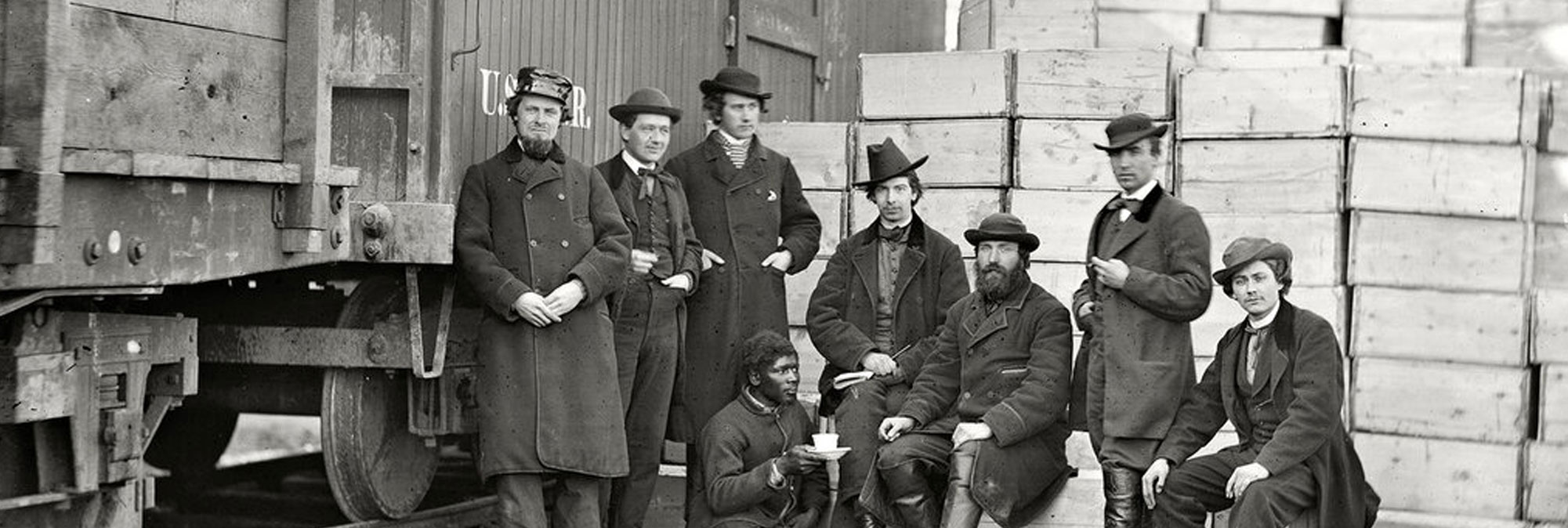
Civil War
War Clouds on the Horizon: 1850 – 1860
The little whistle-stop town of Germantown received daily news from travelers and newspaper deliveries, courtesy of the Memphis & Charleston Railroad, so the citizens were kept abreast of the growing conflicting political feelings all over the nation. The residents, too, were directly affected by the rising taxes and tariffs on manufactured goods imposed by the Northern-controlled Congress. The question of slavery limitation had arisen too, but the citizens of this sparsely settled farm area viewed this talk as outside interference in what should be purely a local or state matter.
By the election time of 1860, the States’ Rights issue had carried over into the national presidential election. Germantown’s 400 voters split their ballots among the three main Democrat candidates, with Stephen Douglas getting the slight edge over John C. Breckenridge and John Bell. A fourth candidate, Republican Abraham Lincoln, got zero votes in Germantown.
The election, however, went to Lincoln. And though he stated that did not want to interfere in the slavery institution, Lincoln opposed its expansion, thus prompting the deep-South state of South Carolina to secede from the Union on December 20, 1860.
Six other Southern states quickly followed that lead and likewise seceded. The question of secession now came before all Tennesseans. In the state’s first referendum on the subject, February 9, 1861, the town’s residents sided with the majority of Shelby Countians, and Tennesseans, and voted for the Union, and urged restraint and neutrality. But this opinion wouldn’t last. National events would soon unfold to move the country toward conflict.
On March 4, 1861, the provisional government of the Confederate States of America was organized at Montgomery, Alabama. In April the North tried to send reinforcements to the Federally occupied Fort Sumter in Charleston, SC, prompting Southern artillery to fire on the fort and effect its surrender. President Lincoln thereupon called for 75,000 volunteers to invade the South. Tennesseans would have no part of fighting against fellow Southerners, and on June 8, 1861, the state likewise seceded.
In Germantown, the leading citizens: Judge Pettit, Constable Job Lewis, William H. Walker, L. A. Rhodes, and T. W. Trueheart, rallied the populace to vote for secession. The vote here was unanimous for Southern independence and to leave the Union.
The impending storm of war was swiftly moving towards our community.
Civil War Trail Markers Introduction
By Andrew Pouncey
The Memphis Charleston Railroad and its connections across Northern Alabama to Chattanooga, Knoxville, Lynchburg, and Richmond represented the only effective rail connection in the Confederacy between the Mississippi River the east coast. This was a vital supply route across the nation, from rich producing areas to the front, as well as a means of shifting troops back and forth in response to threats at various points. Conversely, it was only of local use to the Federal thrusts down the Mississippi River and toward Chattanooga and Atlanta through central Kentucky and Tennessee. The capture of both Corinth and Memphis by strong U.S. forces in May and June of 1862 effectively ended the strategic utility of the railroad to either side for the rest of the war and introduced a new tactical situation into the area of Germantown.
The first measure of follow-up by the Federal army to its winter and spring victories was the occupation of western Tennessee during June and July. This move rapidly dispersed the army into a large number of small, scattered garrisons with severe supply and coordination problems in the face of escalating guerrilla warfare. Primary supply was by rail from a railhead at Columbus, Kentucky, into Jackson, Tennessee, and then to Corinth and Grand Junction. Secondary supply movement was by wagon from Memphis eastward as far as Moscow and LaGrange; the Memphis and Charleston Railroad was considered too insecure for effective use.
Source:
National Register of Historic Places Nomination for Fort Germantown, Germantown, TN,
